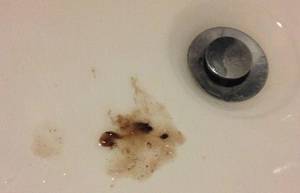

The nose may be bleeding because the bacteria causing the infection may have destroyed the membrane. If someone has recently been ill, especially with sinus infection symptoms, it would be more urgent. Sometimes in the middle of the night, people will pick their noses, which can damage a nearby blood vessel. The delicate nasal membrane in your nose can be damaged by cold, dry air, which can cause bleeding.

Nosebleeds can occur at any time of day or night due to the same reasons that produce them during the day. What Causes Nosebleeds When You Are Sleeping?

If it is persistent or difficult to control, you should visit an ENT specialist.Ĭonsult an ENT doctor if you think a nosebleed is challenging to stop, happens frequently, or if there are no obvious sources of irritation or trauma. If the nosebleed is a single, spontaneously ending episode, there is no need for a medical exam. Post-injury nosebleeds could indicate a broken nose, skull fracture, or internal bleeding. A doctor is not required unless the bleeding persists for more than 20 minutes or happens following an injury.Ī fall, a car accident, or a blow to the face are among the accidents that could cause a nosebleed. Von Willebrand Disease (hereditary blood clotting disorder).Thrombocytopenia (deficient level of platelets in the blood).Heart ailments (mainly in the elderly).Yes, Nosebleeds can result from a range of other health issues. drying out of the mucosa due to prior injury, and even tumors.Ĭan Nosebleeds with Blood Clots Indicate Other Serious Illnesses?.damage from non-medicinal use of cocaine,.reactions to medication which inhibits natural clotting,.Other rare causes of nosenosebleeds with blood clots include: Nose picking is more common when the mucus in the nose is dry and crusty. Our noses are sensitive to discomfort because they have several tiny blood veins on their surface. Less frequently, dryness and nose-picking cause nosebleeds. However, allergies or infections are typically at fault. Most often, dilated blood vessels on the front bottom of the nose cause nosebleeds. Blood clots in the nose are quite common but rarely dangerous. This seals off the blood vessels that are injured and keeps the blood from leaking. A blood clot forms in the nose as the body’s reaction to this injury. When blood vessels in the nose burst, bleeding results. What exactly is a nosebleed that has blood clots? If you get significant blood clots in your nose after bleeding, seek medical attention right once. Very huge clots are those that are the size of a quarter or larger. A typical blood clot is around the size of a dime. However, it must be turned off right away to prevent spills if you cut yourself or suffer an accident.īlood clots are produced in order to halt bleeding, or to put it another way, bleeding ceases when a blood clot forms.īlood clots may range in size. For the duration of your life, it must flow steadily and constantly throughout your body. The role of blood in our bodies is intricate. However, you should take special precautions while treating nosebleeds that have blood clots. Yes! Nasal bleeding is quite typical and generally not a serious cause for worry. According to research, 60% of people have had a nosebleed at least once.


 0 kommentar(er)
0 kommentar(er)
